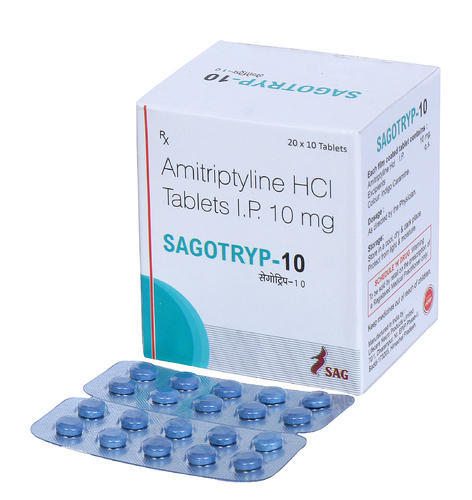AMITRIPTYLINE belongs to a group of medicines called tricyclic antidepressants. AMITRIPTYLINE is used to treat depression, neuropathic pain, chronic tension-type headache, and migraine in adults. AMITRIPTYLINE is also used to treat bedwetting at night in children aged 6 years and above. AMITRIPTYLINE works by affecting certain chemical messengers (serotonin and/or norepinephrine) in the brain which communicate between brain cells, thereby helps in regulating mood and treats depression. AMITRIPTYLINE prevents the transmission of pain signals, thereby provides relief from neuropathic pain.
You are advised to take AMITRIPTYLINE for as long as your doctor has prescribed it for you depending on your medical condition and response to the treatment. In some cases, you may experience certain common side-effects such as sleepiness, drowsiness, headache, irregular heartbeat, dry mouth, constipation, nausea, weight gain, slurred or slow speech, and congested nose. Most of these side-effects do not require medical attention and will resolve gradually over time. However, you are advised to talk to your doctor if you experience these side-effects persistently.
To treat your condition effectually, continue taking AMITRIPTYLINE for as long as your doctor has prescribed. Do not take AMITRIPTYLINE if you are pregnant or breastfeeding unless prescribed by the doctor. AMITRIPTYLINE causes drowsiness, sleepiness and dizziness, do not drive unless you are alert. AMITRIPTYLINE can be given to children over 6years if prescribed by the doctor for bedwetting. AMITRIPTYLINE should not be given to children for treating depression or neuropathic pain. Avoid consuming alcohol along with AMITRIPTYLINE as it could lead to increased drowsiness and dizziness. Keep your doctor informed about your health condition and medicines to rule out any side-effects.











